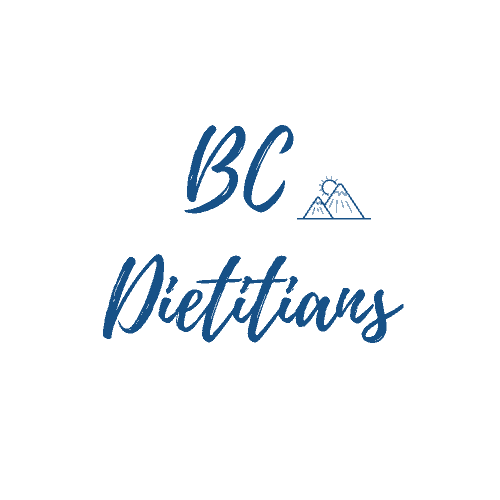How do you get started on healthy eating?
Anyone can start making healthy eating changes by increasing intakes of vegetables, whole grains, and lean proteins while reducing intakes of saturated fats and refined carbohydrates. A change to healthier eating also includes learning about balance, variety, and moderation. Balanced eating can help with energy and blood sugar management – Aim for balance. Most days, eat from each food group—vegetables and fruits, whole grain foods, protein foods and healthy fats.
- Aim for ½ plate of vegetables, ¼ plate protein and ¼ plate (higher fiber) starch. Listen to your body. Eat when you’re hungry. Stop when you feel satisfied.
- Choose a variety of colours, textures and flavours. I like to get creative with my cooking by choosing fruits and vegetables that are seasonal and on sale. This way, it helps with budget, and with increasing variety.
- Practice moderation. All foods in moderation can fit into a healthy diet. Having large intakes of highly refined foods (think white flours, or refined sugars) can decrease energy because they digest quickly, leaving us hungry – causing a fast spike and drop in blood sugars and energy.

How do foods impact my energy?
If you’re feeling a slump after eating, think about your meal breakdown:
- Was there adequate fiber? Fiber can slow digestion, keeping you full and satisfied longer (incorporate foods such as chickpeas, lentils, whole grains, and vegetables to increase fiber in meals). Check how much fiber you need in a day here.
- Was there adequate protein? Protein helps with many things in our body, such as cells, nerves, and muscle building and maintenance. It also helps with digestion, keeping us satisfied and our bowel movements flowing comfortably. Check how much protein you need in a day here.
- Are you hydrated? Dehydration can commonly contribute to fatigue.
Healthy eating will help you get the right balance of vitamins, minerals, and other nutrients. Nutrient deficiencies can increase fatigue, leaving you tired. It will help you feel your best and have plenty of energy. Adequate energy can also help you handle stressful situations more effectively – allowing you to have clear focus and attention on the task at hand.
Try to avoid regular intakes of foods with a lot of sugar. Sugar (whether it’s honey, white sugar, maple syrup or other forms) can digest quickly. It can increase cravings (the more we eat these foods, the more we might crave them) and if eaten in excess, can contribute to over-eating because they don’t make us feel full, so we often have to eat more of them to feel satisfied. It’s ok to enjoy treats in moderation. Working with a dietitian can help support your journey on navigating what moderation may look like for you.
Sometimes, it’s not about the amount of food we’re eating, but the quality of food. This is an idea I like to practice. By choosing healthier foods, higher in protein, unsaturated fats and fiber, you will feel satisfied and it will be easier to eat the amount of food and nutrients that your body needs. When we choose high intakes of sugars or sugar substitutes, we won’t feel full as long, and although they taste good, they aren’t satisfying for a long time- which will leave us on a cycle of continuing to consume high energy foods.
Foods for Energy Boost
For your body to be truly satisfied, your meals need to be balanced. This means that each meal should contain:
- High Fiber Carbohydrate. You get this from whole grains (like steel cut oats, quinoa, or barley) fruits (especially when consuming the skin of the fruit!), and vegetables.
- Lean Proteins. You get this from meat, fish, eggs, milk, yogurt, cheese, dry beans, lentils, tofu, and nuts. Canned fish is often an easy, nutrient dense and cheap protein option. You want most of your protein coming from food sources but some people may find supplementing with protein powder helpful as well.
- Fat. You get the kinds of fat that help you stay healthy from:
- Fish, walnuts, and flaxseeds and flaxseed oil. These have omega-3 fatty acids.
- Olive, canola, and peanut oils; most nuts; avocados; and olives. These have monounsaturated fats.
- Safflower, corn, sunflower, sesame, soybean, and cottonseed oils. These have polyunsaturated fats.
Your meals should contain flavors and foods that you like and want. This also helps you feel satisfied by enjoying items that taste good to you.

For more, or to learn how to incorporate these practices into your lifestyle, book an appointment with me! 🙂
Resources:
Anne C. Poinier MD – Internal Medicine & Adam Husney MD – Family Medicine & Kathleen Romito MD – Family Medicine & Martin J. Gabica MD – Family Medicine & Rhonda O’Brien MS, R. C.-C.-R. (2024, April 05). Healthy Eating: Recognizing Your Hunger Signals. Retrieved from HealthLink BC: https://www.healthlinkbc.ca/healthy-eating-physical-activity/healthy-weights/healthy-eating-recognizing-your-hunger-signals
Canada, D. (2024, April 03). Tips for Healthy Eating, Diabetes Prevention and Management. Retrieved from Diabetes Canada: https://www.diabetes.ca/nutrition—fitness/healthy-eating
Canada, G. o. (2024, April 03). Eat a variety of healthy foods each day. Retrieved from Food Guide. Canada: https://food-guide.canada.ca/en/








Add a comment